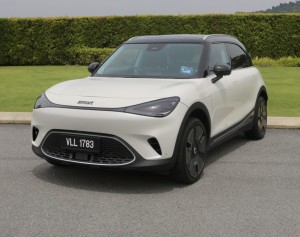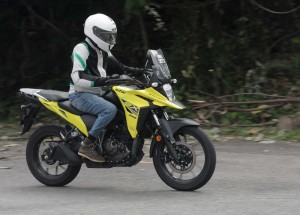Some Asian car, battery makers hit as Trump gets to work
By REUTERS | 21 January 2025
TOKYO/SEOUL: Shares of Japanese automakers and South Korean battery makers fell today, after US President Donald Trump said he could impose tariffs on Canada and Mexico soon and revoked the previous administration's executive order on electric vehicles.
But Chinese manufacturers bucked the trend, with stocks opening higher after Trump did not target China in his inauguration speech or immediately impose tariffs on Beijing as previously promised.
Shares of South Korean shipbuilders rallied with the expectation that Trump's plans to increase gas and oil production would spur demand for transportation vessels.
The volatility in Asian shares following Trump's inauguration underscores how policy changes under Trump could affect major manufacturers in some of Washington's closest allies in the region, such as Japan and South Korea.
These countries' automakers and suppliers are already grappling with the transition to EVs and intense competition from fast-rising Chinese rivals.
Trump indicated potential 25% tariffs on Canada and Mexico, potentially starting on Feb 1. This threat looms over Asian manufacturers as Trump aims to reduce the US trade deficit.
Mexico in particular has long been a low-cost manufacturing hub for automakers, including Asian heavyweights.
Honda sends 80% of its Mexican output to the US market, and its chief operating officer Shinji Aoyama warned in November it would have to think about shifting production if the US were to impose permanent tariffs on imported vehicles.
Mazda Motor exports about 60% of around 209,000 vehicles produced at its plant in Guanajuato, Mexico, to the US in 2024.
It said it would assess what impact potential duties would have on imports from Canada and Mexico, a company spokesman said.
'Great concern'
Nissan has two plants in Mexico, where it makes the Sentra, Versa and Kicks models for the US market.
It exports about 300,000 vehicles to the US a year, chief executive Makoto Uchida said in November.
The Trump administration's economic policies are of great concern to major countries in Asia, which rely on exports for their economic growth.
"A slowdown in the US and global economies due to additional tariffs and other measures will worsen the Japanese export environment," Takahide Kiuchi, executive economist at Nomura Research Institute, said in a note to clients, comments that could likely be applied to other countries in the region.
South Korea's Hyundai Motor and sister automaker Kia, which produce vehicles in Mexico, said in a statement its production there was part of its long-term, global strategy, adding it was is ready to adapt to operations to the international environment.
Battery makers, shipbuilders mixed
Trump revoked a 2021 executive order signed by his predecessor, Joe Biden, that sought to ensure half of all new vehicles sold in the United States by 2030 were electric.
The move is expected to deal a blow to Korean battery suppliers for Tesla, General Motors, Ford and other major automakers, which have been building new battery factories in the United States to benefit from the previous administration's subsidies.
Trump issued an order on Monday for the US to resume processing export permit applications for new liquefied natural gas (LNG) projects, part of an effort to dismantle his predecessor's climate policies.
Trump previously said the United States' shipbuilding industry is in need of South Korea's support.
Tags
Autos News
Reviews

Guangzhou adventures: Zontes 368 scooter and 703 Adventure m...

Zontes motorcycle factory in Jiangmen: Running on a fast tra...

7.6
Maserati GranTurismo (Mk2) Modena: Sharp and smooth operator

6.8
Triumph Tiger 900 GT Pro: Multi-talented adventurer

Hyundai Ioniq 5 N: Born rascal

6.6
Husqvarna Svartpilen 401: Inspiring retro design

8.8
smart #1 (Premium): Agile, engaging, roomy, premium motoring

6.6
Suzuki V-Strom 250 SX: Multi terrain warrior
Videos

StarCarSifu Editors' Choice Awards 2024: Top winners

The Snowball – Lamborghini’s Heartwarming Christmas Story of...

EVOGO battery swapping solution showcased at IAA Mobility 20...
